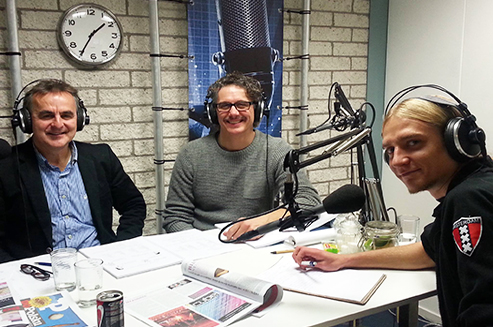Over 70% of the 320.000 Poles residing in Netherlands at the moment possess education on MBO level and 40% on HBO & WO levels. These highly educated immigrants are valuable capital, which in the short term can fill a big request on technological vacancies in Netherlands. In the very near future, it is expected that more people will be willing to leave the technology sector rather than to go into it. This hot topic was touched upon many times, but less frequently within previous years because of a low economic growth and rising unemployment. Nonetheless, this potentially harmful job problem is fast approaching, and the massive migration of people from the population boom has been known for a long time. A bigger influx of graduates is one of the possible ideas to help solve the approaching job deficit as well as the topic of many studies. However, it is also important to keep the workers and retrain unemployed, or stimulation of people who are beyond working market. This great request for exchange is linked with a high demand for new or updated technics. Of course, there will be graduates from technical studies and retrained, but also educated on MBO and HBO levels immigrants. Until that happens, they are often employed with jobs involving paprika and string beans collecting.
This past August, an order for work training that is valued at 1 billion euros, according to Dutch newspapers, will provide work for foreign technics from Poland and Romania at the IHC Merwede shipyard. Furthermore, it has been stated that IHC Merwede was seeking welders abroad, especially in Poland and Romania because it is hard to find them in Netherlands. It is expected that within the next 5 years the estimated number of hard-filled vacancies, especially in technical professions, will amount to 170.000 people. It will ultimately happen because technical professions specialists will retire and there are not enough new people to fill those gaps. In order to prevent it, various initiatives have began and collaboration is beginning to happen between the companies, the government, lines of business organizations and education institutions. However, these conversations are often fragmented and do not contain concrete, comprehensive short-term solutions.
A few facts about the population and the workers within need to be considered when these organizations and institutions come together to find solutions. The worker population in the Netherlands is over 7 million workers, and about 2,1 million of those workers are at the moderately trained professions. Despite that fact, on the MBO level, there is a big number of job offers available, for instance in technical and health sectors. The Ministry of Economy has noticed that lack of technics is a noticeable problem at moment and it is only going to worsen, as we get closer to 2016. What is the reason? The Dutch industry has noted the small influx of graduates and the reality that the attractiveness of education in technical professions is moderately weak. The lack of influx with simultaneous migration of workers seems to offer different solutions, which exist at the moment!
A wise idea for these institutions and organizations would be to focus on education in order to increase technical personnel. Although that attitude is right, the results will be barely be visible in the long-term job market. Furthermore, the current employers focus on the migration of knowledge, such as well-educated workers from Europe, but turn a blind eye to the money earned by European migrant workers. The number of working Polish immigrants is over 320.000 people, and many of them are well educated—mostly at MBO level or even the HBO level. Many of these workers have a level of education that is higher than their salary within their jobs, especially in the technical professions. The predominant figure of these migrants workers who are residing in Netherlands temporarily have shown to stay in the country. The trends show that over 40% of them will settle in this country for good. This movement of workers is great potential influx for Dutch companies, and these migrants could put the Netherlands back on the industrial sector map. Pracuj.FM wants to help with this initiative because the radio is a great medium for connecting immigrants seeking work to earn money, employers and job offers. Polish charts Top 40 pleasantly update these pieces of information – 24 hours a day, 7 days a week.
Polish newspaper in the Netherlands, appearing under the name poPolsku, was established on 11th January this past year. This newspaper prints new editions every two weeks and they sell more than 40.000 copies. The website, social media channels, web television and cooperation with many Polish partners together reach 150.000 Poles. Everyday there is breaking news in both the Polish and Dutch languages at 8:30, on website poPolsku.
The newspaper, as well as website, delivers Dutch news and information when the government and communes cannot or do not want to communicate in Polish. At poPolsku-TV, Dutch news is available in form of movies in Polish.
Photo © Pracuj.FM
More information on: Pracuj.FM



